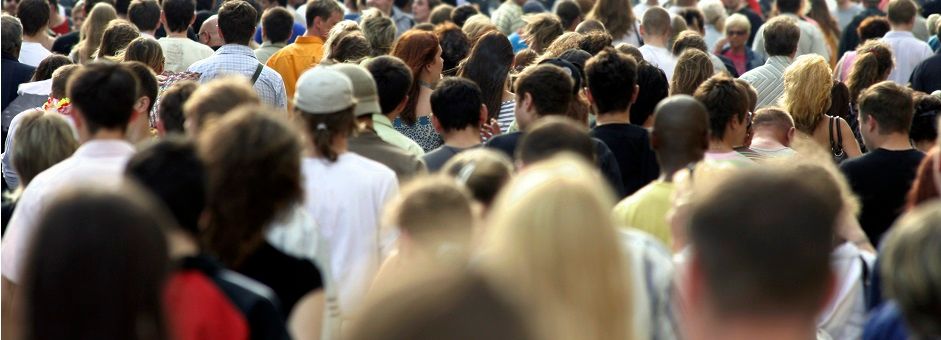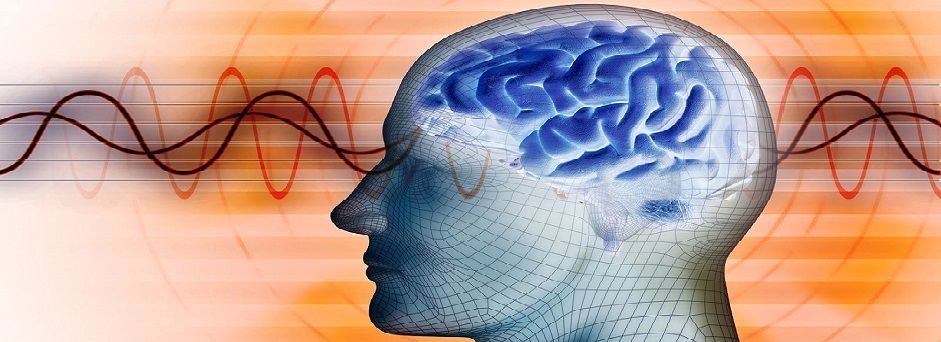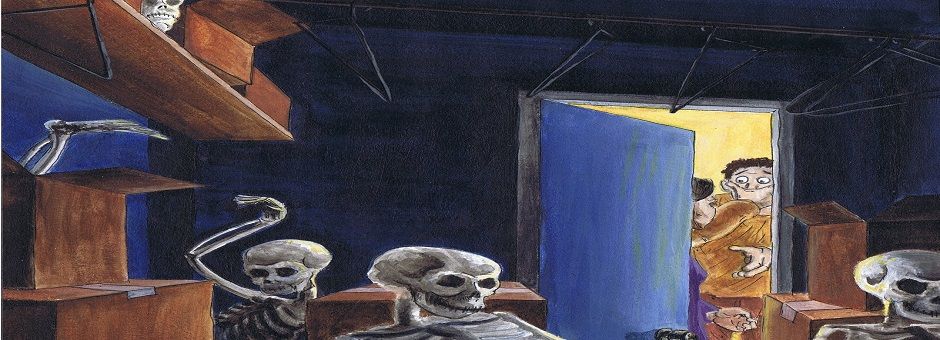Where to begin - Part I here
An introduction to dishonesty - here
Having outlined this mechanism of dishonesty and shown how easy it is to slip in to it, we need to take a broad look at where we are situated. If we can be dishonest about something that simple then we do have to ask questions about whether our entire world-view is founded on honesty. What we often find is that it is based on our second mechanism of dishonesty which is this.
2. Reasoning about an unvalidated assumption using another unvalidated assumption as the basis for the inference.
To illustrate this by analogy it is like arguing about the contents of a box, which you have never looked inside, and then using this assumption as the basis for your argument.
I accept that a fair enquirer such as yourself may think I am being unnecessarily patronising in saying this, but I have to mention it since it was one of the most common aspects of dishonesty we used to come across in the TS days.
An example of such an argument is: 'There is a self because I can think when I want to'.
This kind of argument is derived from not looking in to and investigating the aspects of free will regarding our thinking. Then, it is a simple matter of using this reasoning to assert a self which has, hitherto, never been observed.
In both sides of this proposition a fallacy has been committed but it is not so much that I can or should convince someone the self doesn't exist. However, if they were to look inside the box, so to speak, and examine their free will regarding thinking then maybe they would see this was questionable. Then they might look in to the self after seeing this assumption was untrue.
This kind of investigation is all I can ever hope to achieve in writing any piece here. I cannot convince you about the self, but hopefully I can convince you to look inside the box (and see if the cat is dead or alive Schrödinger! :).
To most people the fact I have mentioned this might seem absurd but the simple fact of the matter is that is scarily common. The depths of your brains deceit will shock you when you start investigating - I can promise you that much. I should also jog your memory that our first pattern was 'resting on prior assumptions without testing their validity' - We are simply dealing with an extension of the first pattern.
This pattern is so common because we have had a lifetime of learning about the world, social conventions, learning coping skills, observing others, making our own mistakes, and of course being exposed to our education system. I think in one sense that it could be labelled as an 'indoctrination system'.
The reason for this is that we are spoon fed an ideology from a young age and this shapes the way we grow up and the thoughts we form about the world.
For instance, if we compared a Nazi ideology to our own, we would find it somewhat abhorrent that school kids were taught they were superior to all other beings and that these others were 'untermensch'.
In our own education system we were relentlessly hammered with a more tolerant ideology of others, which I think makes for a better society, but the fact remains that it is still ideological.
Naturally, if we could cram the best knowledge of the best historical tried and tested ideas and principles in to a training program, it makes sense we have an education system.
This is not without its own set of problems and the way in which the education system was implemented was rightly criticised by Schopenhauer back in the 1800s and has never actually been addressed even to this day.
He made the simple observation that our knowledge in education arises from books and lectures, and rarely from experience. If you think back to the evidence based learning you did at school, maybe you will remember your science classes with fond memories. However, when you think about it you would concede that the majority of your studies were simply taken on faith that the teacher was a legitimate authority in possession of the facts.
What leads us to think that these facts we learn are legitimate is that disciplines such as mathematics and the English language are consistent and internally coherent. In these fields there is certainly little in the way of contradiction until we start learning more English words, especially those with two meanings, or getting in to 'Godels incompleteness theorem' with mathematics for example.
Disciplines such as history (my favourite subject at school) paved the way for our critical thinking faculties and taught us to question versions of events. However, I later learned that we are taught a certain version of history in English schools and it was only when I went travelling and met others from Europe and wider, I realised the horrors that we had inflicted upon the world in our imperial days.
To say we are taught a skewed version of history was an understatement. In Irish schools they teach a more in depth account of the potato famine and the vile horrors that the English inflicted upon starving masses. At our school though it was merely acknowledged that this happened and the atrocities were simply ignored.
This certainly did not interfere with general consensus that we won many wars, were victorious in colonising the largest empire the world had seen, single handedly kick started the industrial revolution, and paved the way for the modern world.
The fact of the matter is that in many ways our knowledge is given to us in the form of concepts and these are learned from books and lectures. I am sure you will also agree that since you left school a fair proportion of the information we derive from TV documentaries, other people, and the like, is 'reported knowledge' rather than derived from your experience.
A clear example of this is regarding outer space. Whilst you may have observed a blurred distant dot that was allegedly the moon through a telescope that shook all over the place as a youngster, much of our knowledge here is purely conceptual. Yet we know a fair amount about the solar system without ever actually going in to outer space.
 |
| Cheeeeese Gromit?! |
We take it on faith that the moon is not made from cheese but we have never bothered going there to look!
Whilst there is nothing wrong with reported knowledge and you can apply this to your own life usefully and critically reflect on it, it points to the fact that Schopenhauer's observation rings true. Whilst we may have had some practical lessons and even questioned some of the concepts we learn, I'm sure you will not be inclined to disagree with me when I say that much of our knowledge is second hand.
Much more of our knowledge than we previously recognised is not actually derived from discovering it for ourselves experientially, it is conceptually taken on faith from a trusted authority.
We take a lot of things on faith from authority and it would be plainly be absurd for me to try and suggest that this is a bad idea. Conversely, there are many things we have learned from our experience too, namely social skills, coping skills and using tools, driving cars etc.
It makes sense that we are indoctrinated with a code of how to behave towards each other and are packed full of the most up to date concepts ready to take out in to the adult world. There is nothing wrong with this but we simply have to recognise that not all of the 'facts' we have learned are necessarily true.
Whilst much of our knowledge is consistent, we merely have to open ourselves up to the possibility that some of it may not be true.
If we take the self as an example, I think you will find that you were never taught anything about it. Your earlier existence entailed that 'you' were responsible for your actions and that you felt shame and humiliation when you were scolded by teachers and parents. Later you learned that all thinking is in a relational capacity to ones self, in relation to others, material needs, goals etc.
The fact of the matter is you were never explicitly taught any of this stuff, and if you ever did question it it was when you first encountered a philosophy class or came across someone else's viewpoint. It is simply a prosaic observation that this account is the way we view the world as 'selves' without ever having ever made it explicit. We simply assume our existence without ever working it out logically and our experience reinforces this notion of our being subjects in the world.
All we have to do really is start to investigate this area thoroughly and check out whether our assumptions were true.
When it comes to the bigger questions like why are we here? Or what is the meaning of life? We are told not to worry about such things and our philosophical inclinations are curtailed from a young age. I was lucky enough to rediscover them with a sense of vigour back when I investigated this no self malarkey.
Your curiosity cannot be buried forever. That nagging doubt you feel about your place in the world, and what it all means, arises from starting out with a distorted view of the world. This view is based purely on the groundless assumptions our brain made about us being some kind of entity having the experience of the world, that we took as a given without ever questioning this notion.
A Given Framework Of Thinking
With limited information our brain fills in the blanks and makes assumptions necessary to fit the framework of facts we are presented with. We are hammered relentlessly by advertisers who play on our primordial fears of being ostracised by our peer group, or try to associate the most mundane and banal items with positive images of fun. Take any advert and look at the images it portrays. Then take the item itself independently from the advert and see if it excites you quite so much. It's just a fucking ice cream right?!
You get people in offices sat there all day trying to associate unconnected things like 'healthy lifestyle' with chemically laden food. This pattern is actually played out to us on the receiving end relentlessly. It is not so much that we take these things as truth, it merely reinforces the view that we are deficient in some way, or of some need, and that these products can fill this void in your life.
Some of the adverts try to elicit us in to feeling an emotional connection to the protagonist. The fact of the matter remains is that it actually works. If it didn't, then why would it be a multi million business?
I would like to say it doesn't work on me as such but when I find myself having to shop around for insurance, what are the first places that spring to my mind? Confused.com, Go Compare etc (In the UK). If I am honest, I am a sucker like the rest of the masses despite not wanting to be.
I am already familiar with these companies and the way they arise in my mind when I want insurance is because when I listen to the radio they are there, when I watch TV they are there. You could literally spend a whole day and have one of their adverts appear every 15 – 20 minutes drumming in to your brain.
I tend to stay away from TV and read books instead, and I also try to avoid listening to local radio, so I am not subjected to the relentless advertising which I have come to despise. I also have ad blockers on my web browser and I delete marketing messages without reading them.
The thing to note is that even though we may try and insulate ourselves from this relentless stream of BS, it still has an effect on us because we absorb the things around us that either grab our attention, or pass us by unaware.
It is impossible for your mind not be polluted with these cultural artefacts.
The fact that confused.com and go compare spring to mind is not because you have the remotest interest in insurance products, it is their aggressive advertising practices which means you can't help that they spring to mind when you have the ball ache of hunting for a cheaper insurance renewal.
More alarming is the active influence in society which emanates from the news and print media. When we engage with any form of media we are being deliberately led to think in a certain manner and their goal is to convince us that their account is correct. If we think about communication in its most basic form we use it to influence people.
Even if we are telling the time or talking about the weather, we are in some way attempting to influence another person to believe the facts we may be in possession of.
Politically speaking, matters are far far worse than we may think. What we have is not a debate in this country, but parameters to contain any real debate. Mention Karl Marx and be ready for some opinion editorial piece , by someone who never read a single page of Marx's work, to tell you what a wretched political system he advocated.
Whilst Mr Marx's positive thesis has been laid to waste and has been a proven failure in practice, his criticisms of the capitalist system are poignant and as valid as ever. However, these howling contradictions he highlighted within this system are generally ignored.
We might ask how is it that we can ignore such howling contradictions that render the capitalist system as broken? The way in which in this done is by the media repeatedly portraying Marxism as a failed system and by extension we simply assume that he never had any good insights about the current system that organises society at large, since these are never mentioned anywhere.
By framing Marx as a villain they propagate the ad hominem fallacy by trying to slur his character and make it sound as though he had nothing valuable to say.
It should be no surprise that it is the wealth accumulating to the top 1% and various other things that the power elite want to maintain. Their vested interest is in maintaining the status quo is in order to propagate the favourable arrangements that they and their cronies enjoy at the expense of the common man.
It should not be too difficult for you to see that the majority of Britain's media is owned by the wealthy and they try to keep control of the parameters of the debate.
As Noam Chomsky said:
'The smart way to keep people passive and obedient is to strictly limit the spectrum of acceptable opinion, but allow very lively debate within that spectrum' (Chomsky, 1998).
The media in this country have pulled off a coup de tat. By silencing genuine and poignant criticisms of the capitalist systems they have effectively silenced this aspect of the debate. Where do we ever get to hear any meaningful debate these days?
Rather than being presented with the arguments for each side, we have opinion pieces which aim to influence us by appealing to our emotions rather than present any kind of rational debate.
The reason for this is that we are apathetic to what is going on and most people don't want to hear about the debate. If we were to present the debate it would take up multiple pages and lets face it, most people are more inclined to read a few paragraphs that sum it up simply, and arouse their emotions, than engage in any real critical thinking.
This is because critical thinking and philosophy are boring to most people.
Period.
It is asking a lot for the layman to engage in any kind of debate that goes way over their heads. However, some of us are condemned to the compulsion of a life of picking away at orthodoxy and exploring the implications of our discoveries.
To say that capitalism is flawed is missing the bigger picture since there are definitely virtues of such a system. Communism is hardly going to solve the problem and has its own major flaws and contradictions. However, the way in which neo-liberal economic orthodoxy is failing us is in that the state is deregulating restraints on business and curtailing the liberties of its citizens.
You need only read about the way our governments have been busted for spying on its citizens (viz. Snowden) yet allow companies like Amazon to avoid paying its fair share of tax. The fact of the matter is that corporate power has infiltrated our democracy. Economic priorities trump the very people whom the economic practice of capitalism is meant to serve.
Keynes (1936) described it as 'The worm that had been gnawing at the insides of modern civilisation... the over-valuation of the economic criterion'. Nearly one hundred years later we are still faced with the same problem and there has been little impetus for society to move on from this dead end of thinking (we are in a post modern crisis of capitalism).
Our priorities have been skewed by our indolence to the real debate we should be having and the fact of the matter is that economics are prioritised above human well being and that of the fragile planet upon which we live. To my mind the right / left split in politics is a false dichotomy that pits one aspect of human nature against the other. I am not the first to call for a new politics but what we have currently is broken in many ways.
Whilst we have got sidetracked here, what we have shown is that what we see and hear is controlled in the sense that an orthodoxy is entrenched, and alternative views silenced. The internet is the greatest threat to this control of information so have the government responded to it?
If we were not influenced so much by society then why would there be a need to go to such lengths to control the narrative, and why would the Chinese government, for example, attempt to throttle free speech on the internet? Clearly certain narratives are dominant and are reproduced across society. Big narratives are ideologically determined by the media and often go unchallenged. These form the basis of political discourse and try to make it more palatable to the everyday layman by simplifying things.
'Ideas are dangerous, but the man to whom they are most dangerous is the man of no ideas. The man of no ideas will find the first idea fly to his head like wine to the head of a teetotaller' (G. K. Chesterton, 1905).
Here we can give an example of how narratives proliferate the mindset of a nation.
Bertie lives in a reclusive village and is a reader of a propaganda rag that masquerades as a newspaper. In the pages of the 'Daily Fail' it speaks of the horrors of foreign immigrants coming over here to maliciously steal our jobs and pillage our benefits system.
Bertie has never seen an immigrant before but he doesn't need to. He has all the facts he needs to know already. He can go down the pub in the evening and recite these horror stories. As he slams down his drink proclaiming that immigrants have ruined this country, his compatriots nod along in unanimous agreement.
Perhaps if Bertie left his insular village and went out to meet some of these 'horrendous' immigrants who have only 'come here to commit crime and cheat us', he might discover that most of them are the same as us. They want enough money to have a decent standard of living, and be happy.
Many are prepared to work hard for this opportunity and have left their families behind to try and escape the poverty trap they found themselves in. Others have fled war zones and risked their lives by placing themselves in the clutches of people smugglers who profit from desperation.
Immigrants are a convenient scapegoat for the abject failings of successive governments. Whilst immigration inevitably causes some problems, it is more convenient for the government to say it is immigrants who have put public services, such as the NHS, under strain than to admit that their philosophical outlook is completely broken and is failing its citizens.
In any case, Bertie may come across a bad example that reinforces his stereotype, or he may meet someone who challenges his view. The point here is that whatever experience he has, at least he can reason from the solid grounds of direct experience instead of a reported knowledge that was designed to fit an ideological viewpoint. That's a start at least.
Whilst Bertie might end up committing another fallacy by tarring everyone with the same brush, at least he has made an effort to see if his assumptions were true, even if he doesn't change his convictions.
The moral of this story is simply that it is so easy and common place to reason from untested assumptions, that it is natural for us to absorb narrative accounts and use these as a basis to draw conclusions. Most often, we simply absorb the conclusions we are spoon fed by society that may or may not have a factual basis.
The important thing to realise here is that we are now in the business of checking our assumptions and conclusions with a fine toothed comb, and we are aware that this pattern of dishonesty is so common place that we often don't realise we are doing it. Unlike Bertie, we cannot rest on mere generalisations derived from our limited experience either.
We are going to have to dig much deeper.
It is not honest enquiry to say “I must exist” without actually checking all the assumptions. Naturally, the difficulty in looking at no self arises from the standpoint of being in the world as a supposed participant. We cannot simply reason that we don't exist as this is contradictory information to our experience so far in life. Nor can we do detached objective enquiry, since we are always already within the bounds of our cultural preconceptions that shape how we process that knowledge.
It should now be not so shocking to you to conceive that if it is possible for adults with a brain to absorb narrative accounts from propaganda gutter journalism, then the possibilities for polluting a young inquisitive mind, that lacks critical thinking faculties are unlimited. We need only consider folly such as the tooth fairy, god, and father christmas for examples of perpetrating deception.
Your teachers, parents, and society at large, had a head start in telling you things were a certain way and, unlike the father christmas story, you never once stopped to question what you were told.
It might seem obvious and intuitive that we are an agent pulling the strings behind our experience. Once we start to peel back our assumptions and unearth our dishonesty though, we discover that there is not much logical basis for our assertions and that our received 'default wisdom' is quite empty.
We may assert that there is some being in the tree telling its leaves how to grow but this is just as empty an assertion as claiming there is a self that directs the thoughts and actions. Our enquiry therefore, is not focussed on logically denying our existence or assessing dialectical arguments endlessly.
We have to look at the phenomena unfolding in reality at the present moment.
Crucially though, we also have to be aware this enquiry can be distorted by our taken for granted beliefs and assumptions and this is where dishonesty comes in to play for the fair enquirer. By utilising looking, and logic as a tool, we can actually discover the doublethink in which we are engaged, which supports the notion of being an independent entity living in an internal world that directs the bodies actions in an external world.
By now you should have a very solid grasp that we cannot take anything for granted – we have to do the work and test it out.
In this manner, we need to be vigilant of when we are using untested assumptions and investigate them instead. We also need to drop any reasoning that are extended from any untested assumptions. We will look at a comprehensive example later on, but for now you need to be aware that this pattern is so very very easy to fall in to, and infects a surprising facet of what we think of as 'truth'.
It is now pertinent to turn our attention to begin to look at how we conceptualise this self on an intuitive level...
The Fairytale of Dishonesty >





























